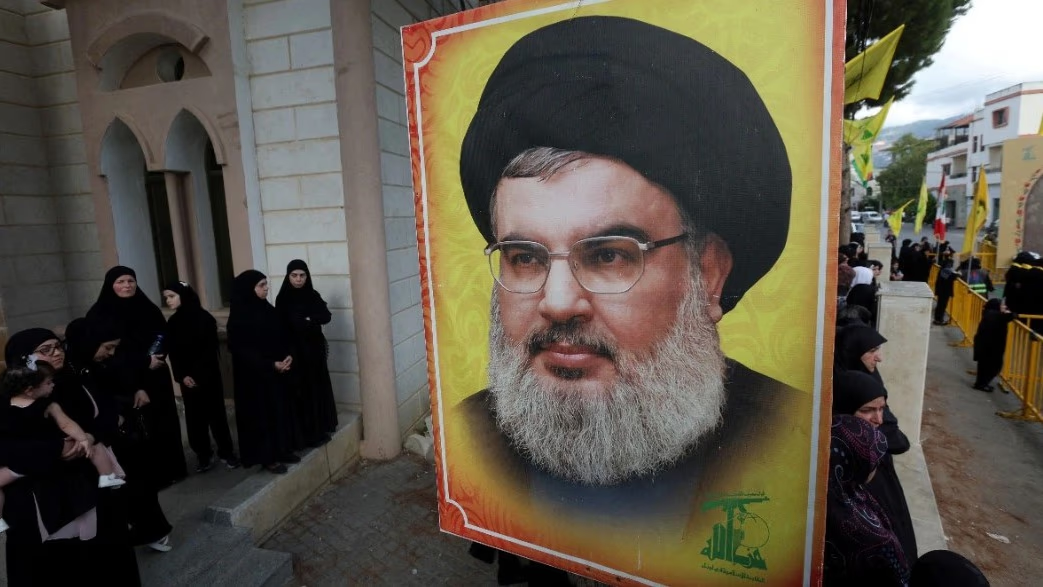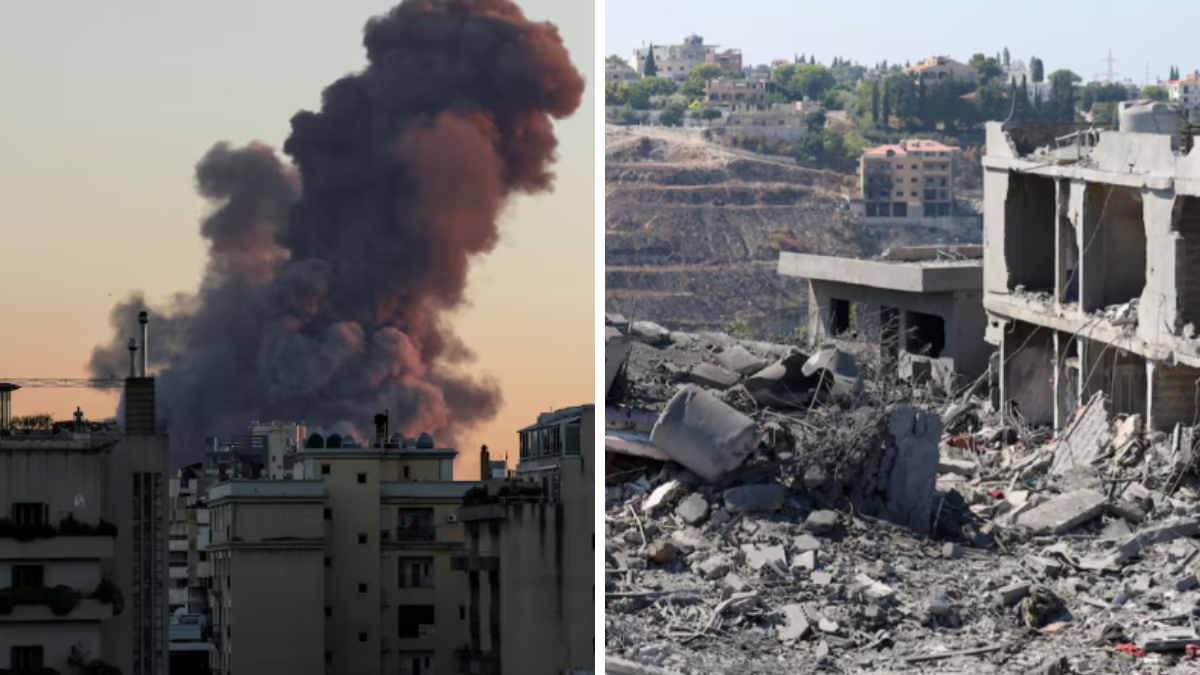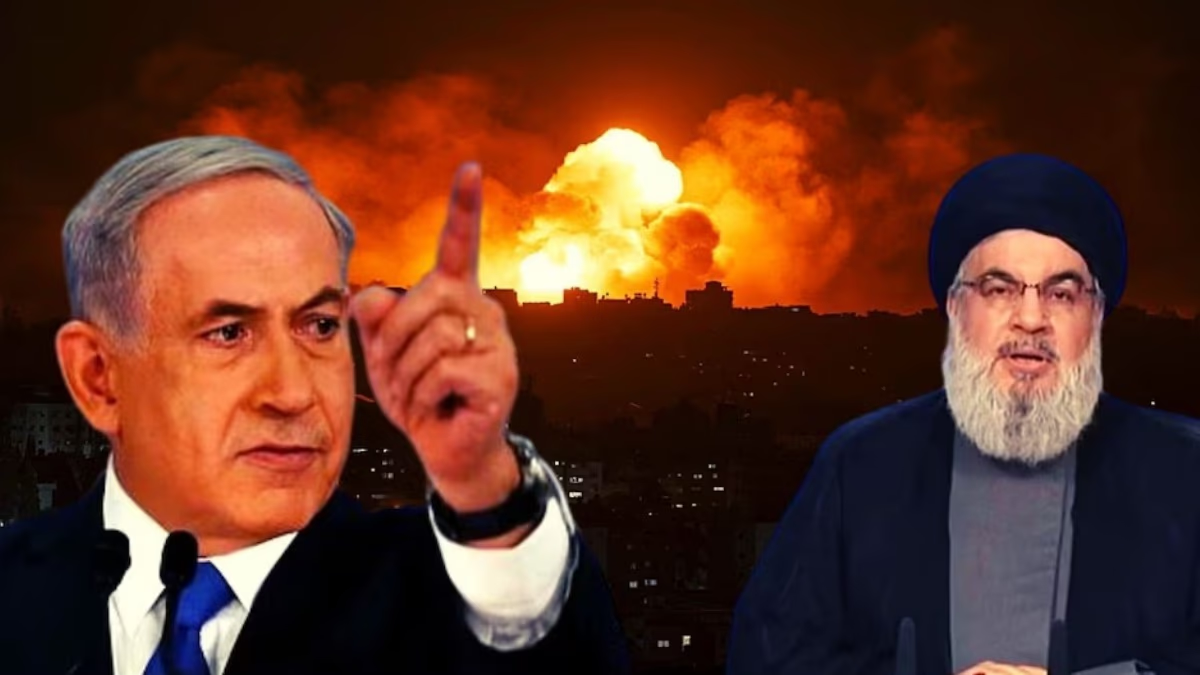On Friday evening, the Israeli Air Force launched a major airstrike on Lebanon's capital, Beirut. The military reported that it targeted Hezbollah’s headquarters as part of 'Operation New Order.' The attacks aimed to eliminate Hezbollah leader Hassan Nasrallah, who was reportedly in the command center at the time. Israel claimed that the Hezbollah chief was killed in the strike. However, Hezbollah has not yet responded to these claims.
Israeli media reported that over 80 bombs were dropped on Hezbollah’s headquarters, each containing an average of a ton of explosives. Bunker-penetrating bombs were also used. It was this devastating attack that led to Nasrallah's death. An Israeli official confirmed to the Times of Israel that the attacks targeted Hezbollah leader Hassan Nasrallah. Additionally, it is claimed that Hassan Nasrallah's daughter, Zainab Nasrallah, was also killed in the attack. The area was engulfed in smoke following the strike. The sky was filled with nothing but smoke, and the streets were covered with rubble. Approximately six buildings were destroyed.
Officials stated, "It is hard to imagine anyone surviving such an attack," as multiple Hebrew media reports also indicated Nasrallah’s death in the underground headquarters assault. In a parallel account, a source close to the Lebanese armed group told Reuters that Hezbollah's chief, Hassan Nasrallah, couldn’t be contacted after Israeli strikes hit southern suburbs of Beirut on Friday evening.

Source: aajtak
In the aftermath of the Israeli airstrikes, thousands in Beirut's densely populated southern suburbs are fleeing for safety. Many have taken refuge on streets, public squares, and temporary shelters overnight. Israel had ordered everyone to evacuate before it launched its attack on Hezbollah’s stronghold.
Hezbollah's Anti-Ship Missiles Targeted by Israel
The IDF (Israel Defense Forces) revealed it is currently targeting three buildings in Beirut’s Dahiya suburb, where Hezbollah is believed to store anti-ship missiles. The military stated that more details on the attacks would be provided later. Earlier, the IDF had alerted civilians around three buildings in Beirut’s southern suburbs, warning them of imminent attacks. At a press conference, IDF spokesperson Rear Admiral Daniel Hagari disclosed that Hezbollah had subterranean storage facilities housing shore-to-sea missiles, which pose threats to Israeli and international shipping.
Israel Seizes Broadcast Frequency
Israel has taken control of the broadcast frequency of Beirut airport’s control tower and ordered an Iranian plane to desist from landing in Lebanon. Lebanon’s MTV network recently quoted sources from the Ministry of Transportation and Public Works (headed by Hezbollah minister Ali Hamieh), stating that Israel's takeover of the broadcast frequency of Beirut International Airport involved insisting that an Iranian aircraft be barred from landing. Failure to comply would result in Israel “using force.” Consequently, Lebanon’s transport minister (affiliated with Hezbollah) ordered the Iranian aircraft not to land in Beirut.

Source: aajtak
Israeli Army Orders Beiruti Residents to Evacuate
The Israeli military has ordered residents of Beirut’s Al-Burajneh and Al-Hadath areas to immediately evacuate their homes and move more than 500 meters away due to ongoing Hezbollah attacks. The Israeli army’s Arabic-speaking spokesperson, Avichay Adraee, said on Saturday, “You are near Hezbollah targets, and for your safety and the safety of your loved ones, you must evacuate the buildings immediately and not stay within 500 meters.” This order comes amid escalating threats of Israeli attacks, as reported by CNN.
Beirut Hospitals Preparing for Evacuations
In Lebanon, Hassan Nasrallah held a revered stature, particularly among his Shia supporters, being seen as the sole figure capable of making decisions about war or peace. In 2006, during previous Israeli attacks on Lebanon, it was also claimed that Nasrallah had been killed, although he emerged unscathed days later. The Lebanese Health Ministry has now ordered hospitals in southern suburbs of Beirut to prepare for evacuations. They have been instructed not to admit any non-critical patients to ensure space for those potentially evacuated from conflict zones.




